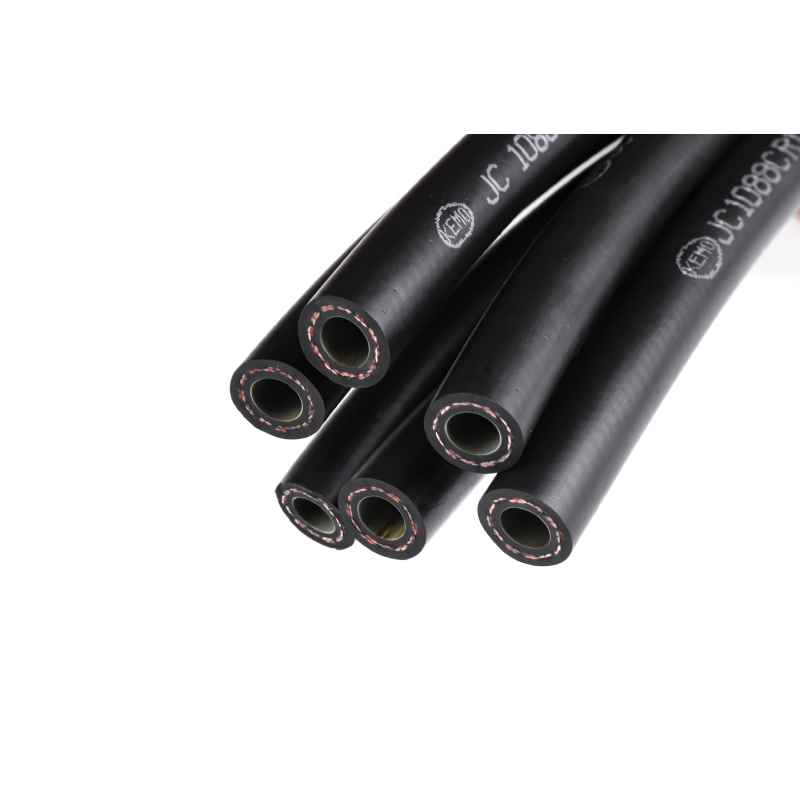Versatile AC Flexible Hoses for Efficient Cooling Solutions and Easy Installation
Oct . 02, 2024 11:40 Back to list
Versatile AC Flexible Hoses for Efficient Cooling Solutions and Easy Installation
The Versatility of AC Flexible Hoses
In the world of HVAC (Heating, Ventilation, and Air Conditioning) systems, efficiency and performance are paramount. One crucial component that often goes unnoticed is the flexible hose, particularly AC flexible hoses. These hoses play an integral role in the effective functioning of air conditioning systems, and their versatility makes them essential for a myriad of applications.
Understanding AC Flexible Hoses
AC flexible hoses are specifically designed to handle the unique demands of air conditioning systems. Made from materials such as rubber, silicone, or polyurethane, these hoses are crafted to withstand variable temperatures and pressures. Unlike rigid piping, flexible hoses can bend and twist, making them perfect for installations where space constraints and tight corners are present.
These hoses can be classified into different types based on their construction, including braided, corrugated, and reinforced designs. Each type serves specific purposes, ensuring that HVAC professionals can choose the right solution for their needs. The flexibility in design also allows for easier maintenance and replacement, leading to lower operational costs and increased system efficiency.
Benefits of Using AC Flexible Hoses
1. Ease of Installation The most significant advantage of using AC flexible hoses is the ease of installation they offer. HVAC technicians can maneuver these hoses through tight spaces, making installation straightforward and less time-consuming. This flexibility can significantly expedite the installation process, saving both time and labor costs.
2. Vibration Dampening AC systems experience various vibrations due to the operation of compressors and fans. Flexible hoses can absorb these vibrations, preventing wear and tear on the system components. This quality not only enhances the longevity of the HVAC system but also contributes to quieter operation.
3. Temperature and Chemical Resistance AC flexible hoses are engineered to withstand extreme temperatures and exposure to various chemicals. This durability is critical in maintaining efficiency, as hoses can often be exposed to refrigerants that may otherwise degrade less robust materials. Their ability to remain intact under such conditions ensures the reliability of the entire system.
4. Leak Prevention The construction of AC flexible hoses allows for a tighter fit and more secure connections, reducing the likelihood of leaks. This aspect is crucial because refrigerant leaks can lead to inefficiency and pose environmental hazards. With the right flexible hose, systems can maintain optimal performance levels and reduce the risk of costly repairs.
ac flexible hose

5. Applications Across Industries Beyond HVAC systems, AC flexible hoses find applications in various industries such as automotive, marine, and manufacturing. They are used in areas that require fluid transfer and management, which highlights their versatility and adaptability to different operational environments.
Considerations for Choosing AC Flexible Hoses
When selecting AC flexible hoses, several factors must be considered
- Material Compatibility Ensure that the material of the hose is compatible with the refrigerants and operating conditions of your system.
- Diameter and Length The diameter and length of the hose must match the specific requirements of your installation to maintain effective airflow and minimize pressure drops.
- Pressure Ratings Assess the pressure ratings of the hoses to ensure they can handle the operational pressures of your HVAC system.
- External Environment Consider where the hoses will be installed. If they will be exposed to UV light or harsh weather conditions, materials that offer UV resistance or weatherproofing should be prioritized.
Conclusion
AC flexible hoses are a vital element in ensuring air conditioning systems operate efficiently and effectively. Their adaptability, durability, and performance make them an indispensable choice for HVAC professionals and other industries alike. Whether you’re installing new air conditioning units, replacing old hoses, or simply looking for ways to enhance system performance, investing in quality AC flexible hoses will undoubtedly lead to better results, reduced maintenance, and improved operational efficiency. As technology continues to evolve, the future of AC flexible hoses looks bright, promising even greater innovations in both material and design.
Latest news
-
Refrigeration Hose-HEBEI KEMO|Low Permeability&Pulse Resistance
NewsAug.12,2025
-
Refrigeration Hose-HEBEI KEMO AUTO PARTS TECHNOLOGY CO., LTD
NewsAug.12,2025
-
Refrigeration Hose - HEBEI KEMO AUTO PARTS TECHNOLOGY CO., LTD|Low Permeability&Ozone Resistance
NewsAug.12,2025
-
Durable AC Pressure Hose for Reliable AC System Repair
NewsAug.12,2025
-
Refrigeration Hose-HEBEI KEMO AUTO PARTS TECHNOLOGY CO., LTD|Low Permeability,Pulse-Resistance
NewsAug.11,2025
-
Refrigeration Hose-Hebei Kemao|Industrial Applications&Automotive Systems
NewsAug.11,2025
